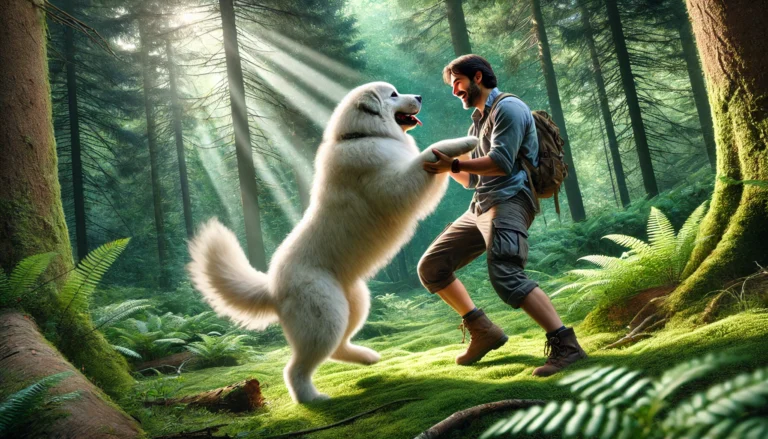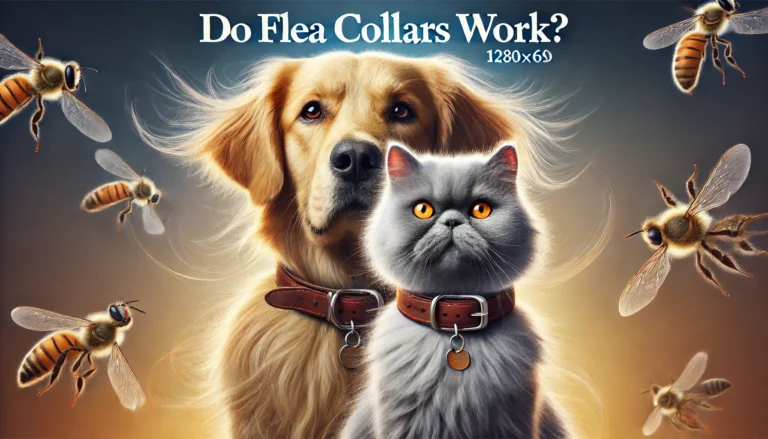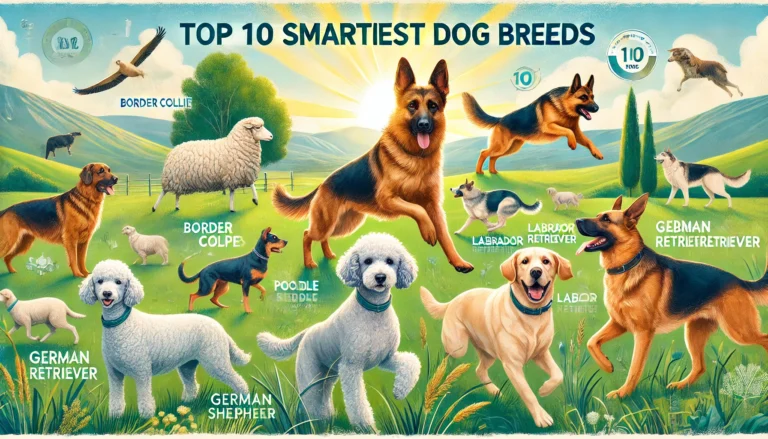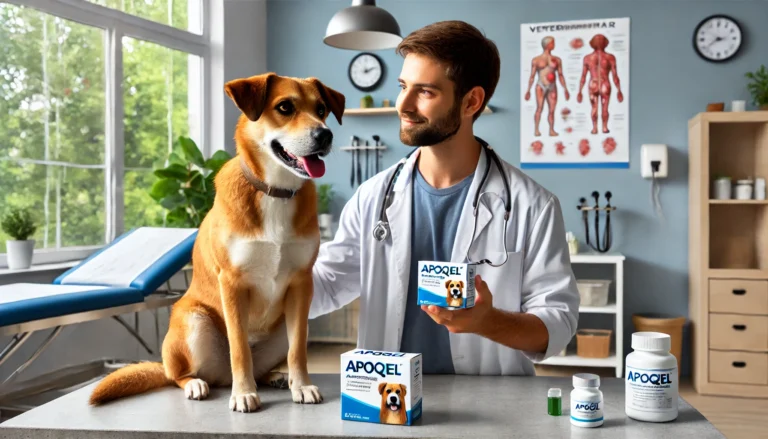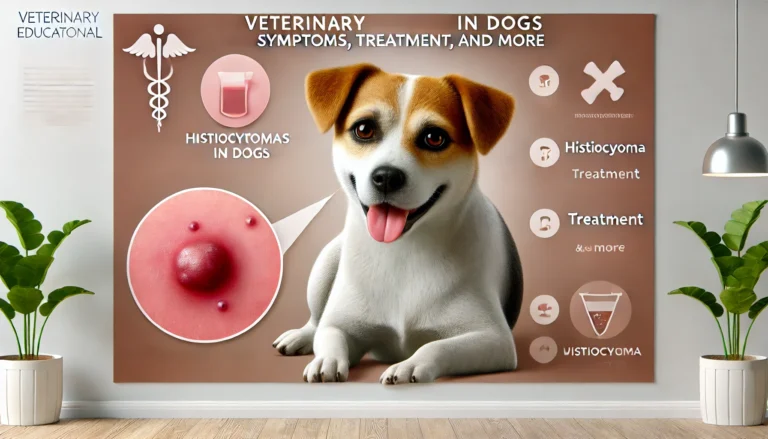Why Do Dogs Lick The Air?
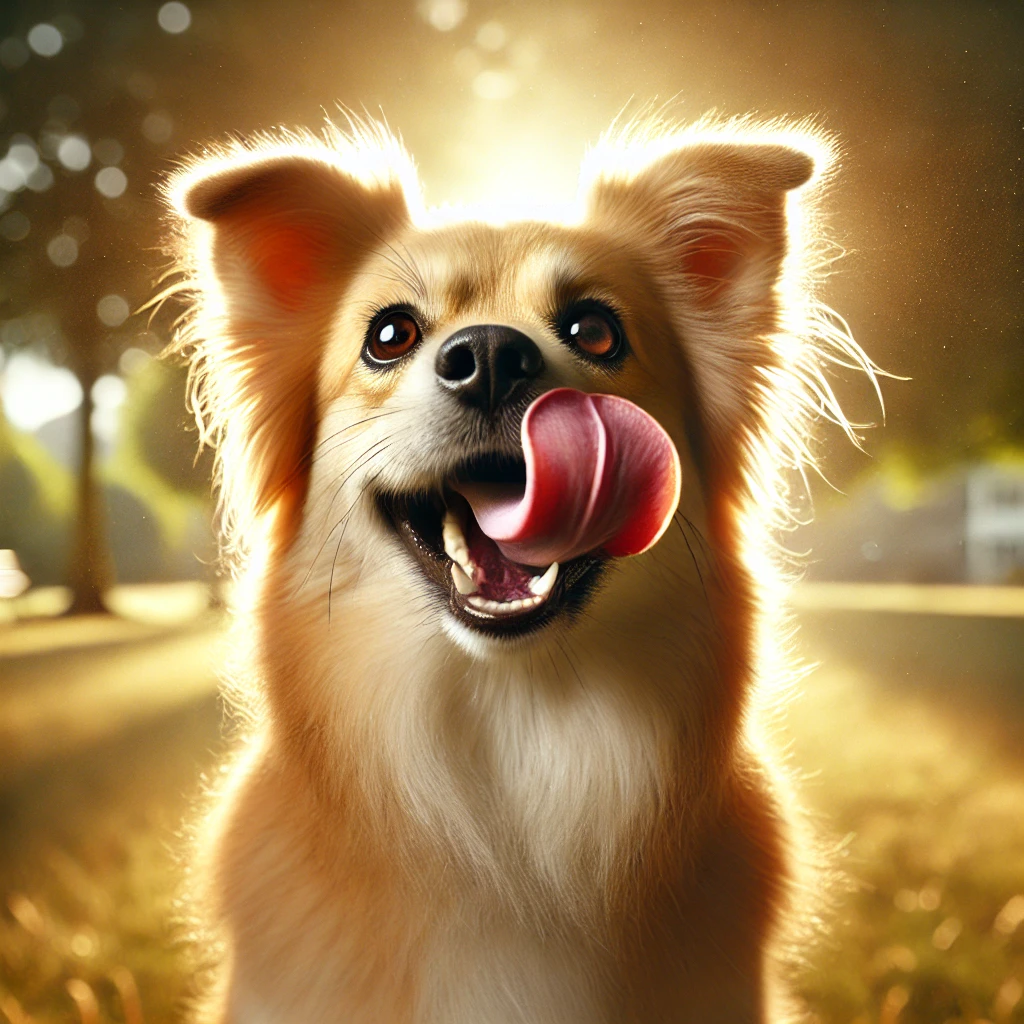
Dogs Lick The Air
Why Do Dogs Lick The Air?YES!Dogs are known for their quirky behaviors, and one such behavior that often leaves pet owners scratching their heads is licking the air. While it may seem amusing at first, persistent air licking could be a sign of an underlying health issue or emotional distress. This article will explore why dogs lick the air, the possible causes, symptoms to watch out for, and how to diagnose, treat, and prevent this behavior.
Whether you’re a new dog owner or a seasoned pet parent, understanding your dog’s behavior is essential for ensuring their well-being. So, let’s dive deep into the topic to uncover the reasons behind this unusual behavior and provide actionable advice.
Understanding Dog Licking Behavior
Before we dive into the specific reasons why dogs lick the air, it’s important to understand dog licking behavior in general.
Dogs lick for several reasons, and it’s typically a way for them to interact with their environment. Licking is a natural behavior that can serve multiple purposes, such as:
- Exploration: Dogs often use their tongues to explore their surroundings, similar to how they use their noses.
- Grooming: Licking is an essential part of self-grooming for dogs, helping them keep their fur clean.
- Affection: Dogs often lick their owners as a way to show affection and bond.
- Stress Relief: Licking can serve as a calming behavior when dogs are feeling anxious or stressed.
However, when a dogs lick the air excessively, it can be more than just a harmless quirk. Let’s explore some potential reasons behind this behavior.
Causes of dogs licks the air
1. Anxiety and Stress
One of the most common reasons dogs lick the air is due to anxiety or stress. Just like humans may fidget or bite their nails when anxious, dogs may engage in behaviors like licking the air.
Common Triggers:
- Separation Anxiety: When a dog licks the air is left alone or separated from their owner, they may lick excessively as a way to self-soothe.
- Loud Noises: Fireworks, thunder, or loud traffic sounds can trigger stress in dogs, leading to air licking.
- Change in Environment: Moving to a new home or experiencing changes in their routine can create anxiety in dogs.
Signs of Anxiety in Dogs:
- Excessive licking or chewing
- Restlessness or pacing
- Whining or howling
- Destructive behaviors (chewing furniture, tearing up belongings)
2. Medical Issues
Sometimes, licking the air can be a symptom of an underlying medical problem, ranging from dental issues to gastrointestinal problems.
A. Dental Problems
Dogs may lick the air when they’re experiencing discomfort in their mouths. Issues such as gum disease, tooth infections, or a foreign object lodged in their mouth could lead to this behavior.
B. Gastrointestinal Issues
Gastrointestinal discomfort, such as acid reflux, nausea, or an upset stomach, can cause a dog to lick the air. Dogs often lick excessively when they’re trying to soothe their tummy.
C. Neurological Conditions
In some cases, excessive licking may be a sign of a neurological disorder. Conditions like seizures or compulsive disorders can lead to abnormal licking behaviors, including licking the air.
D. Skin Irritations
Dogs may also lick the air to relieve itching caused by skin irritations or allergies. While this typically involves licking their body, they may occasionally lick the air if the sensation is bothering them.
3. Habitual or Compulsive Behavior
For some dogs, air licking may evolve into a compulsive behavior. This is often seen in dogs with Canine Compulsive Disorder (CCD), a condition where the dog feels compelled to perform certain actions repeatedly.
Common Signs of Compulsive Licking:
- The licking is persistent and can’t be stopped.
- Licking occurs at specific times or situations.
- The dog seems to be in a trance-like state during the licking.
4. Play and Excitement
Dogs that are highly energetic or excited may occasionally lick the air, especially during moments of play. In these cases, air licking is just another way for the dog to express their excitement.
When Playfulness Leads to Licking:
- A dogs lick the air after a particularly exciting play session or when they’re getting attention from their owners.
- Some dogs may lick the air to initiate play or express eagerness.
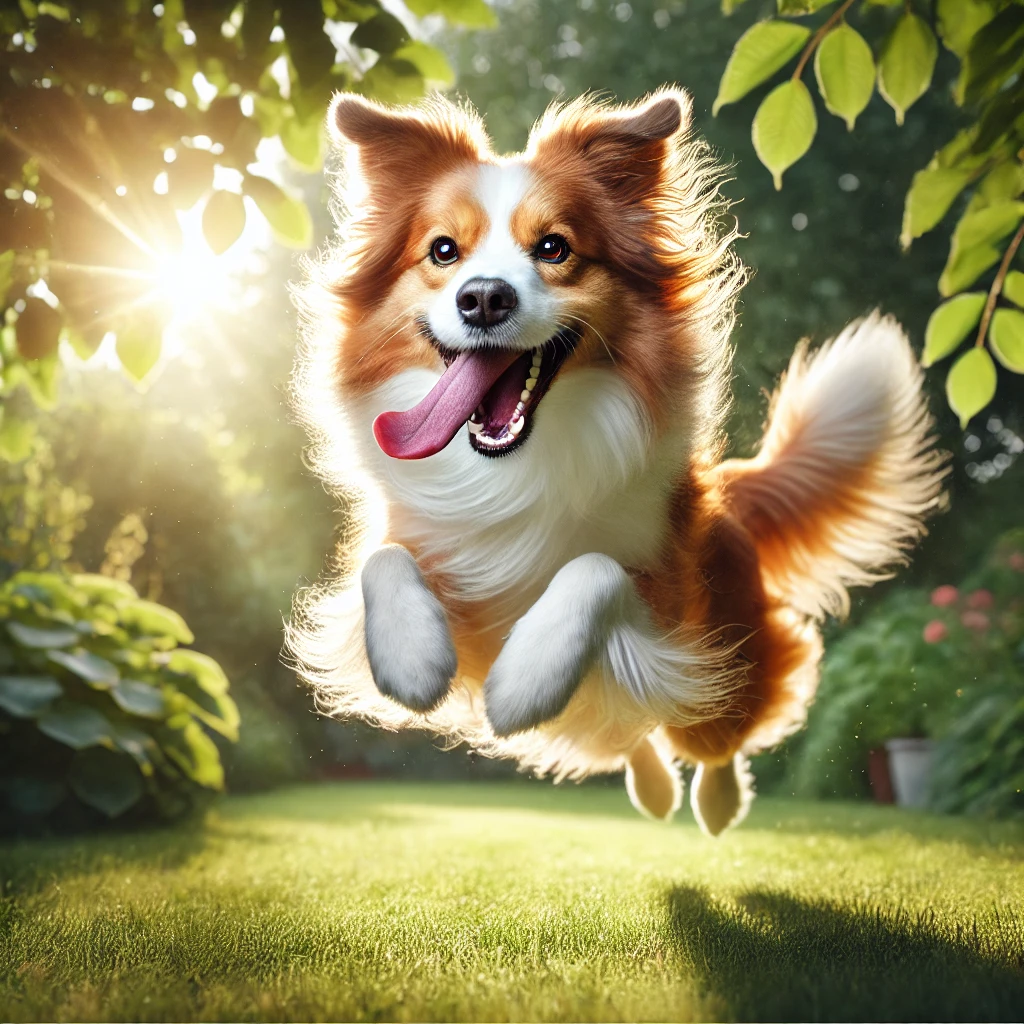
Symptoms of Air Licking
When a dog licks the air, it’s essential to observe the behavior closely and watch for any other signs that may indicate an underlying issue.
Common Symptoms to Watch For:
- Frequent or Persistent Licking: If the air licking happens regularly and doesn’t seem to stop after a short time, it may be a cause for concern.
- Changes in Eating or Drinking Habits: If your dog is licking excessively, it could be a sign of discomfort, which may affect their appetite or water intake.
- Licking Combined with Other Behaviors: Pay attention if the licking is accompanied by other symptoms like excessive drooling, shaking, or head tilting.
- Discomfort or Agitation: If your dog seems restless or agitated while licking the air, it could be an emotional or physical reaction.
Diagnosing the Cause of Air Licking
If your dog’s air licking behavior becomes persistent or concerning, it’s time to seek professional help. A veterinarian will need to perform a thorough examination to determine the underlying cause.
1. Physical Exam
The first step in diagnosing the issue is a physical exam. The vet will check for any signs of oral or gastrointestinal issues, skin irritations, or signs of neurological conditions.
2. Blood Tests and Imaging
If necessary, the veterinarian may recommend blood tests to check for infections, gastrointestinal problems, or other health concerns. Imaging such as X-rays or ultrasounds can help diagnose dental or neurological issues.
3. Behavioral Evaluation
If the cause of the licking appears to be behavioral, a veterinarian might refer you to a professional animal behaviorist. This step is crucial for diagnosing Canine Compulsive Disorder or any emotional or psychological triggers like anxiety.
Treatment for Air Licking
1. Medical Treatment
If the air licking is due to a medical condition, such as dental problems or gastrointestinal issues, treatment will focus on addressing the underlying problem.
- Dental Issues: Treatment may involve cleaning, tooth extraction, or antibiotics.
- Gastrointestinal Disorders: Your dog may be prescribed antacids, probiotics, or a special diet to ease discomfort.
- Neurological Problems: Medication or therapy may be necessary if a neurological condition is diagnosed.
2. Behavioral Modification
For dogs with anxiety or compulsive licking, behavioral modification techniques can be highly effective. These may include:
- Desensitization: Gradually exposing the dog to the stressful situation in a controlled way to reduce anxiety.
- Counter-conditioning: Rewarding the dog for non-licking behaviors to encourage alternative actions.
- Increased Exercise and Mental Stimulation: Ensuring the dog gets enough physical and mental stimulation to reduce anxiety or boredom.
3. Medication for Anxiety or Compulsive Licking
In some cases, medication may be prescribed for anxiety or compulsive behaviors. This can help to calm the dog and reduce excessive licking.
do you know
When it comes to managing inflammation, allergies, and certain immune conditions in dogs, Temaril-P for dogs is a widely prescribed medication. This combination treatment contains two powerful active ingredients, trimeprazine and prednisolone,
Preventing Excessive Air Licking
While it’s not always possible to prevent air licking entirely, you can take steps to reduce the likelihood of it becoming a problematic behavior.
1. Provide a Stress-Free Environment
- Maintain a Routine: Dogs feel more secure when they know what to expect. A predictable daily routine helps reduce anxiety.
- Create a Safe Space: Ensure your dog has a quiet, comfortable space to relax and retreat to when feeling overwhelmed.
2. Address Medical Issues Promptly
- Regular check-ups with the vet are essential to catch any health issues early on. If your dog starts licking the air, especially if paired with other symptoms, it’s important to seek veterinary care as soon as possible.
3. Enrich Your Dog’s Environment
- Provide toys, puzzles, and plenty of opportunities for physical exercise. A mentally stimulated dog is less likely to engage in compulsive behaviors like air licking.
- Consider introducing calming supplements or toys, like calming collars or pheromone diffusers, especially if your dog is prone to anxiety.
Conclusion
Dogs lick the air for a variety of reasons, ranging from harmless curiosity to medical concerns or anxiety. While occasional air licking might be nothing to worry about, persistent licking could indicate an underlying issue that needs attention. By observing your dog’s behavior, consulting with your vet, and using appropriate treatment strategies, you can help your dog overcome excessive air licking and ensure their well-being.
Why does my dog keep flicking his tongue in and out?
When a dog keeps flicking its tongue in and out, it might be trying to express various emotions or deal with physical discomfort. One reason could be dogs lick the air to soothe themselves when they are anxious or stressed. Flicking the tongue can also be a sign of trying to taste the air, especially if the dog is sensing something interesting in its environment, like a scent. Additionally, this behavior could indicate issues such as oral discomfort, nausea, or even neurological conditions. If the tongue flicking becomes excessive or is accompanied by other signs of distress, such as drooling or shaking, it is important to consult a vet to rule out medical causes.
Why does my dog keep looking up in the air?
Dogs may look up in the air for several reasons, some of which could relate to environmental stimuli. When dogs lick the air, they sometimes look up, trying to locate a source of the scent or sound that caught their attention. It could be a passing bird, a breeze carrying an interesting scent, or even a high-pitched noise that is hard for humans to detect. If your dog is consistently looking up and also showing signs like air licking or excessive sniffing, it might be worth observing for anxiety or obsessive behaviors, as dogs with compulsive disorders often engage in repetitive actions like dogs lick the air when seeking out stimuli in their environment.
Why does my dog lick the air like a lizard?
If your dog licks the air in a manner that resembles a lizard, it may be a sign of anxiety, excitement, or even a compulsive behavior. Dogs lick the air in this way sometimes as part of their self-soothing mechanisms when they feel stressed. Similar to how some lizards flick their tongues to smell, your dog might be trying to detect scents or identify unfamiliar smells in the environment. This kind of licking can also occur when dogs feel overstimulated or are trying to engage with something they can’t physically reach. If the behavior becomes frequent or compulsive, it’s advisable to monitor your dog’s overall behavior and consult a veterinarian for guidance.
Is my dog smiling or stressed?
It can sometimes be challenging to determine whether your dog is smiling or stressed, as the facial expressions of dogs vary based on their breed, temperament, and mood. When dogs lick the air, it could be a sign of stress, especially if combined with other signs of discomfort like lip-licking, panting, or restlessness. A genuine “dog smile” is usually seen when the dog has a relaxed, open mouth, and their eyes appear soft and content. However, if your dog is constantly licking the air, showing tense body language, or excessively panting, they may be experiencing anxiety rather than happiness. It’s important to assess their overall body language to understand the context better.
Why do dogs lick the air when you scratch them?
When dogs lick the air while you scratch them, it may be a sign that they are experiencing a pleasurable sensation, or it could be a sign of excitement or anxiety. Licking the air can serve as a calming signal when dogs feel overstimulated during physical interaction. Additionally, scratching a dog in certain areas might trigger a natural response to lick, similar to grooming behavior. In some cases, dogs with sensitive skin or areas of discomfort may lick the air to try and alleviate the sensation. If you notice your dog licking excessively or showing discomfort during scratching, it may be helpful to monitor for underlying health issues, such as skin irritations or allergies.
Why does my dog keep biting the air?
When dogs bite the air, it could be an expression of play, excitement, or frustration. Dogs lick the air for various reasons, and similarly, biting the air may happen during moments of intense stimulation or curiosity. If your dog is repeatedly snapping at the air, it might be trying to catch something, like a fly or a floating object. However, it could also indicate compulsive behavior or anxiety if the air biting is persistent and uncontrollable. Dogs may exhibit this behavior when they are feeling stressed, frustrated, or unable to engage with something that they are focused on, such as an invisible object. If air biting becomes excessive or disruptive, consider consulting a vet for further evaluation.
Why does my dog keep licking her private area?
Excessive licking of a dog’s private area can indicate a variety of potential issues. Dogs lick the air in some cases to signal discomfort, and licking their private area could be a sign of irritation or infection in that region. This behavior might be a response to urinary tract infections, yeast infections, allergies, or skin irritation. In some instances, it could be linked to behavioral issues like anxiety or compulsive grooming habits. It’s important to observe the frequency and context of this behavior. If it becomes frequent or is accompanied by signs such as redness, swelling, or discomfort, a visit to the vet is necessary to diagnose and treat any underlying medical conditions.
Why is my dog always staring at me?
If your dog is always staring at you, it could be a sign of affection, curiosity, or a request for attention. Dogs often look at their owners as a way to bond and communicate. Dogs lick the air at times when they feel anxious or in need of comfort, and staring may accompany this behavior if the dog is looking for reassurance. Some dogs may stare because they are trying to read their owner’s emotions, particularly if they sense that something has changed in their environment. If the staring is intense and coupled with excessive licking or other anxious behaviors, it could indicate a need for more attention or a behavioral concern that should be addressed.

